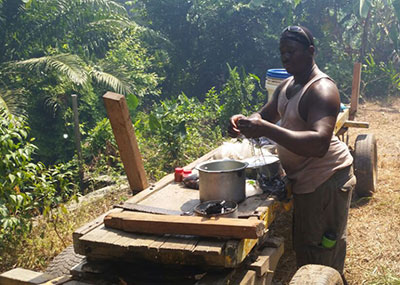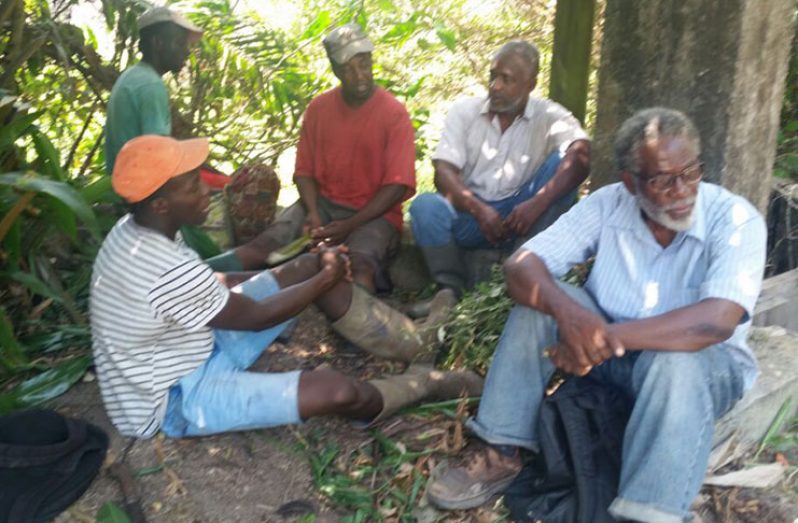AGRICULTURAL Specialist and Chairman of the Victoria/Belfield CDC, Errol Luke and a group of key decision-makers within that community have endeavoured to mount an ambitious programme in an effort to promote farming and other economic activities within the two villages.

In so doing, Luke has spared no effort in conducting a feasibility study so as to be able to make effective decisions for the advancement of Victoria and Belfield. In his study, he concluded that there was a need to organise a `farmers’ programme to provide technical assistance to agricultural producers, and training to the youths who desire to work in agribusinesses and organisations in the community or country” and this is being submitted to the government.
Through the implementation of the project, he said, local specialists will use their time and expertise and spend three to four weeks on specific technical assignments, working directly with participants in the community to address their needs. The programme is intended to cover all training costs and any work-related expenses. It also aims to bring about poverty reduction and improve the economic and social welfare of the Victoria/Belfield community.
Victoria and Belfield
Victoria Village on the East Coast of Demerara, Guyana, is located 29 kilometres (18 miles) east of the capital city, Georgetown. This village is also referred as the ‘First Village’, having been the first village bought by 83 ex-slaves from some of the nearby villages such as Ann’s Grove, Douchfour, Enmore, Hope and Paradise. These people (ex-slaves) pooled their money and purchased the village in 1839.
Belfield, on the other hand, is the village immediately west of Victoria, which was made famous since one of Guyana’s former presidents – L.F.S. Burnham made there his home. There is hardly any distance to the two villages since a simple dam/road divides the two villages – people walking on that road hardly even know that they are not in Victoria.
Community training
Victorians inherited the legacy of farming, marketing and then saving to accomplish their intended goals. They were always an ambitious set of people and many of them to this day still keep farming as a means to an end, even though some of them are not full-fledged farmers at this time.
The two sets of people hardly see any difference between themselves and so there is always that ‘community life’ on-going. For this reason, the twin communities work mostly hand-in-hand with each other. Therefore when a plan was hatched it was natural that both of the communities would be included.
This community training programme, as it is called, has been designed for expertise in agriculture, aquaculture, small business development, computer and environment specialists and with extensive knowledge and experience in teaching and demonstration.
The programme is also designed to conduct crash courses which will seek to improve farm base skills, computer literacy, small business and organisational skills of the people in the community. Further, it intends to provide information and practical exposures to four main topics for discussion. These include crops and animal husbandry; effects of crop and animal rearing on the environment and animal breeding and nutrition, creative entrepreneurship, growing a small business and small business marketing.
Empowering villagers
The intention of this programme, is “To introduce and empower villagers to entrepreneurial opportunities in agriculture and other related ventures; to encourage students perusing various areas of studies in agriculture so as to aid in the development of a thriving aquaculture sector within the Ministry of Agriculture; to motivate farmers and other members of the community to new and updated scientific research findings and new technologies in farming and business,” Luke said.
He said that the expected results would be to see: Improved farm base skills; small business and organisational skills; as well as computer literacy of the people in the community.
It is expected, that the programme will see sustained farming and business ventures; community supported social/cultural activities; community supported business ventures; also an improved standard of living for members of the community (mercilinburke2017@gmail.com)


.jpg)











